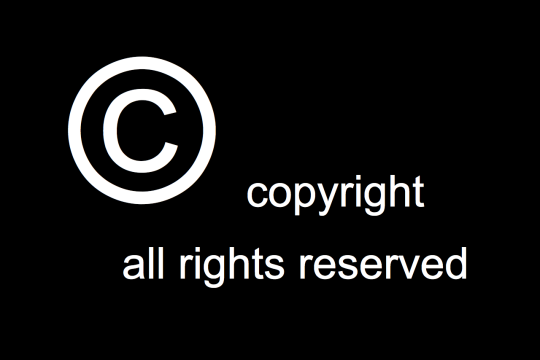
Post: 23 July 2017
The phrase “all rights reserved” is used in two distinct but related ways in copyright and licensing.
On the one hand “all rights reserved” is a copyright formality required by the Buenos Aires Convention of 1910. Under that convention creators have to assert their property rights in a work in order to be granted copyright.
That use of “all rights reserved” is now effectively obsolete. Since 2000 all states signatory to the Buenos Aires Convention are also members of the Berne Convention, which requires copyright to be granted without any formality of notice. Creators no longer need to use “all rights reserved” to protect their copyright.
On the other hand “all rights reserved” remains in wide use, particularly on the web, as an indicator that the owner of a copyrighted work has chosen not to grant to others any automatic right to re-use that work.

For example on Flickr All Rights Reserved is listed as a licence type with the following meaning:
You, the copyright holder, reserve all rights provided by copyright law, such as the right to make copies, distribute your work, perform your work, license, or otherwise exploit your work; no rights are waived under this license.
This is notice of a decision not to licence, rather than an actual licence.
“All Rights Reserved” in this sense is at the opposite end of the licensing spectrum from open licences such as the OGL, CC-BY and CC0, which grant broad rights of re-use with minimal or no restrictions.
This should mean “all rights reserved” will never apply to open data. However most open licences encourage publishers to specify an attribution statement, for use as an acknowledgement of the source of the data, and I sometimes notice “all rights reserved” in those statements.
There are currently more than 1,000 datasets listed on Data.gov.uk as re-usable under the Open Government Licence but with “all rights reserved” in the attribution statement or metadata.
This may indicate a lack of understanding or it may be that the attribution statements pre-date the decision to release the data under an open licence.
Using “all rights reserved” in the context of open data sends mixed signals to users. They are being told in the licence that they can use the data however they wish and in the attribution statement that (conversely) they have no rights of re-use at all. For this reason I encourage open data publishers to avoid use of “all rights reserved” in attribution statements and metadata.
Image: Copyright Symbols by Mike Seyfang (CC BY 2.0)